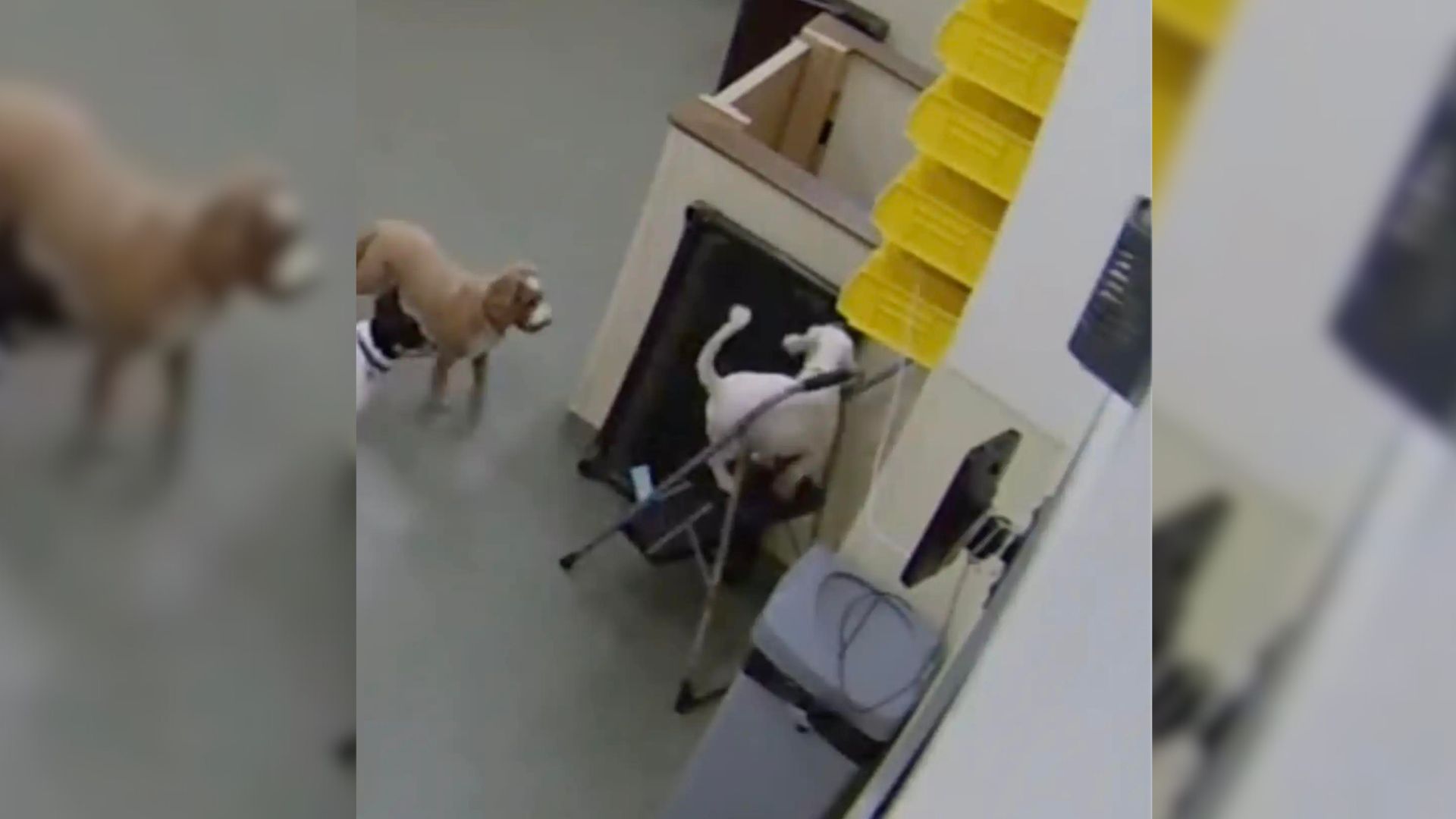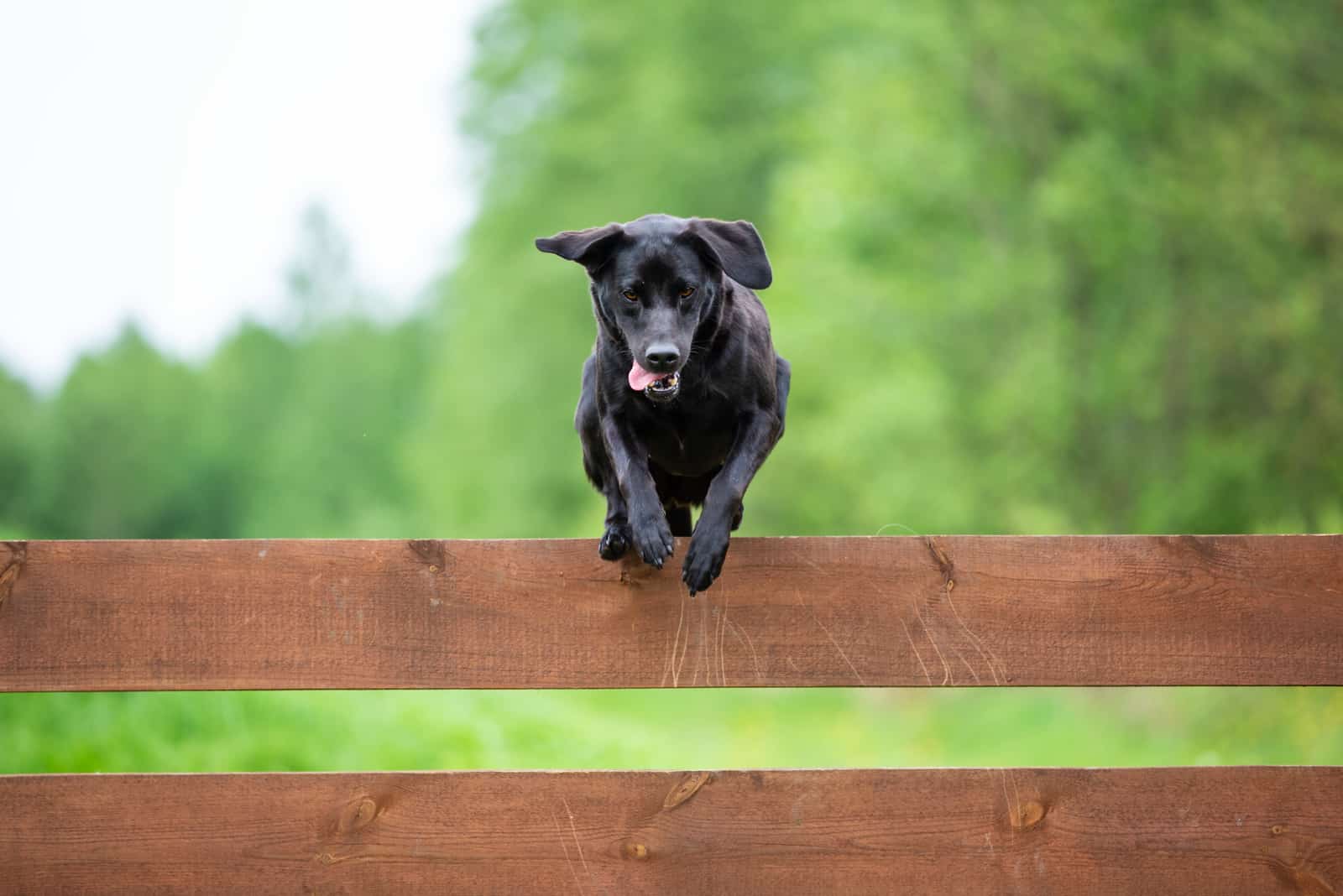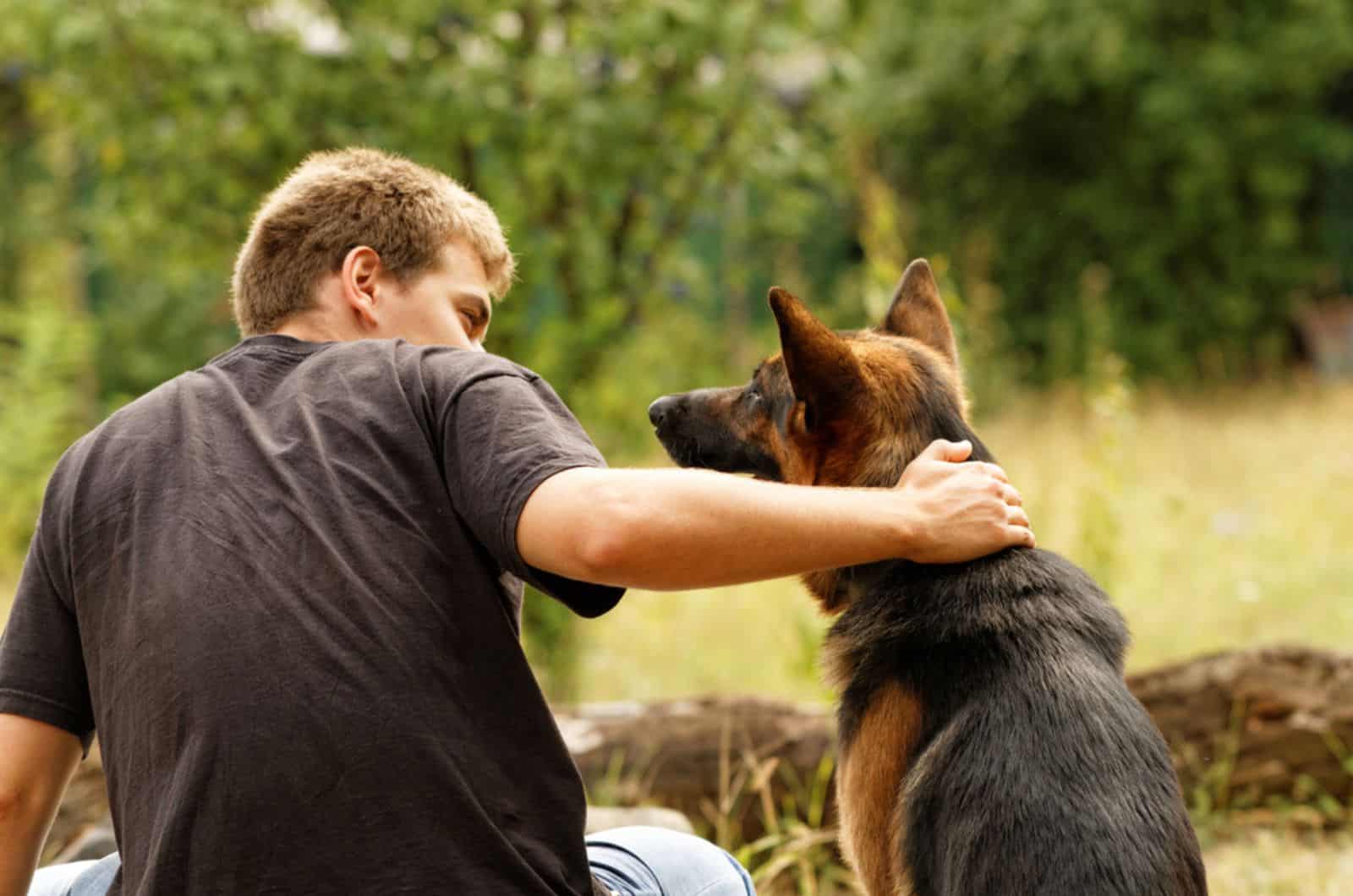Is your German Shepherd giving you trouble? Or, are you constantly worrying that your GSD’s behavior is a lost cause? Despair no more! Here are some pretty cool tips on how to get a German Shepherd to obey you.
But, first and foremost, you need to identify the cause of a certain behavioral pattern in your GSD. Not all dogs are disobedient and overwhelming by default. Quite the opposite – these German beauties are just craving to please you. You just need to find the motive!
How To Get A German Shepherd To Obey You
It is no secret that German Shepherd puppies are considered to be one of the smartest breeds in the world. But, what good does that do for me, you ask? Well, the fact that these pooches are naturally intelligent is the biggest asset you have, so use it wisely!
The GSDs body language is the first thing that you need to pay attention to. This can be tricky if you’re a first-time dog owner, but don’t worry! You will eventually learn on the job.
GSDs are displaying all kinds of emotions throughout their body language. That being said, you will easily identify anger, disinterest, enthusiasm, or even sorrow in your dog. The most obvious tell-tale signs are its ears, tail, eyes, and body position.
Once you understand how your GS companion works, you will have a greater chance of manipulating its behavior.
Here are seven most convenient tips to get your German Shepherd to listen to you…
1. Keep Your Training Short, But Frequent
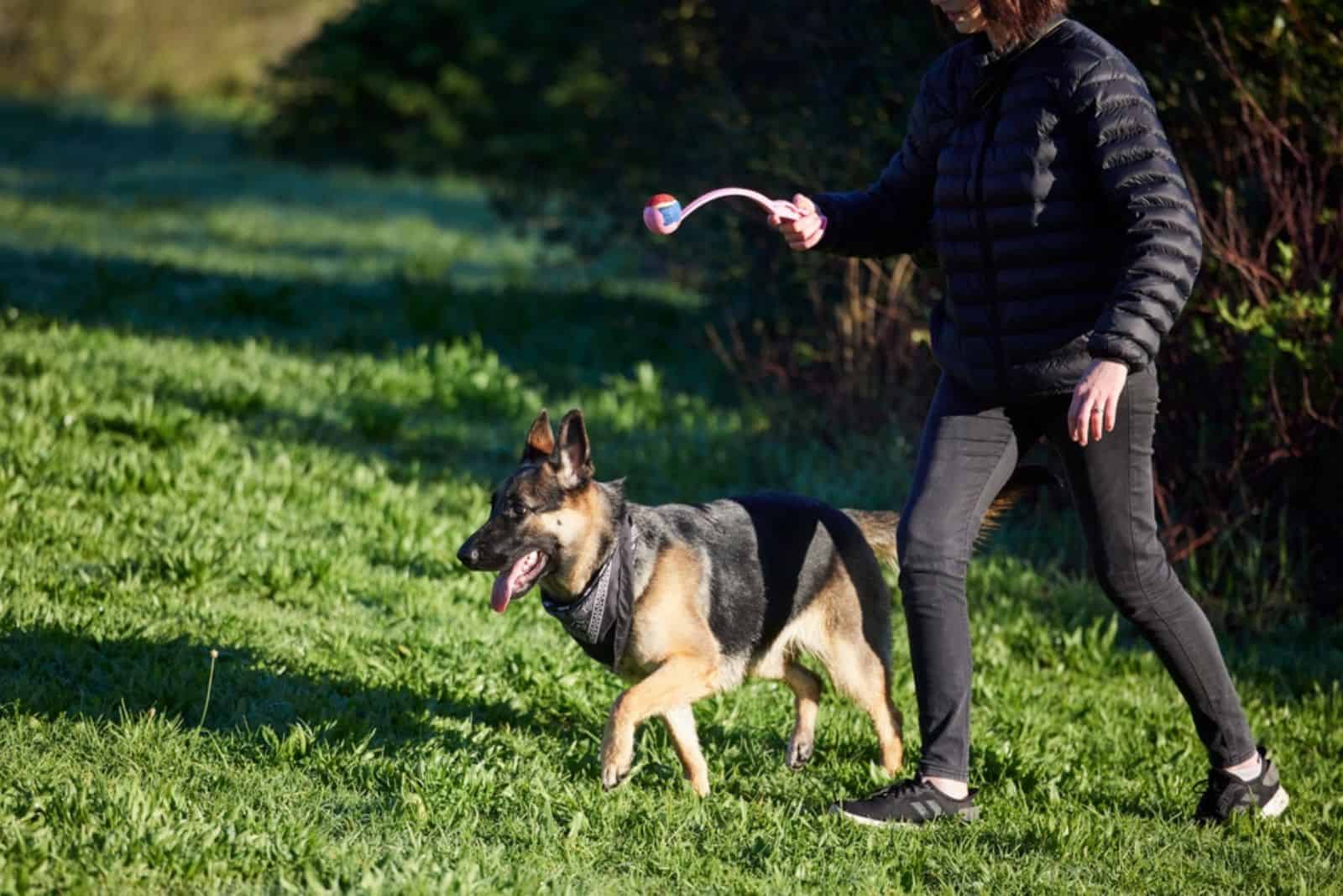
One of the biggest mistakes full-blooded GS owners make is keeping their dog’s training sessions too long. A German Shepherd puppy not listening will not necessarily change if you keep pushing it over and over again.
Instead of making your puppy’s training last for hours, try breaking it down into several smaller ones. Use five- to ten-minute-long sessions. Give your dog treats as a reward at the end of them. On the other hand, use time-outs as punishment. And, redo it all over again.
This way, you will keep your GSD constantly engaged. Keeping the sessions short is generally a good idea when your puppy is much too distracted. Over time, as you see the first results, you will be able to gradually increase the duration of the session.
2. Socialization Is A Key
We cannot speak of good obedience training if your dog is not properly socialized. Early socialization training is probably the first thing every respectable owner should pay attention to.
Bear in mind that this is an aggressive dog by default, which means that the process of socialization in its adulthood will probably be a lot more complicated.
GS socialization training starts at eight weeks of age if you have picked up a puppy from a breeder or even before if you have picked it up from a shelter or a street. Start with the adaptation process… give your puppy time to get to know its living environment.
Then, introduce it to other family members. Eventually, your dog will be able to distinguish a friendly attitude from a hostile one. And, that’s what you want when your friends come over!
3. Positive Reinforcement

If you’re thinking of tough love – let me stop you right there! These canines, as much as they crave firm leadership, don’t respond well to violence!
Instead, try using positive reinforcement. The ‘’How to get a German Shepherd to obey you’’ mystery is far easier to decode with positive reinforcement techniques, such as petting, praising, and rewarding.
Use dog toys, treats, and food to reward. And… ignore punishment! This is an extremely intelligent dog breed that reads your body language perfectly. That’s why they don’t need more than ignoration to understand that they’re doing something wrong.
4. Don’t Yell, Scream, Or Hit
The ‘’how to train a puppy to listen’’ enigma is never answered by hitting your dog. If we assume that this is an intelligent, and yet aggressive dog breed, there is quite a good chance that your GSD will reciprocate the violence.
Instead of having an obedient dog in your home – you are most likely to deal with a violent one. That’s why harsh training methods, such as yelling, hitting, and screaming are never encouraged in GSD training.
Many dog owners misperceive firm leadership with violence, though. These two are never the same as being firm and decisive reflects self-confidence, motivation, and natural strength. Violence, though, is a sign of weakness, and your dog will perceive it as such.
5. Mental Stimulation
Both male and female GSD canines are known to be dogs with extremely high mental stimulation needs.
Their natural intelligence positively correlates with the fact that they get easily bored. That being said, being creative is one of the best answers to how to get a German Shepherd to obey you.
Try implementing interactive dog games, such as hide and seek, treasure hunt, or dog puzzles. GS puppies love being stimulated, which is why keeping them occupied and purposeful increases their obedience level at the same time.
6. Never Break Down The Routine
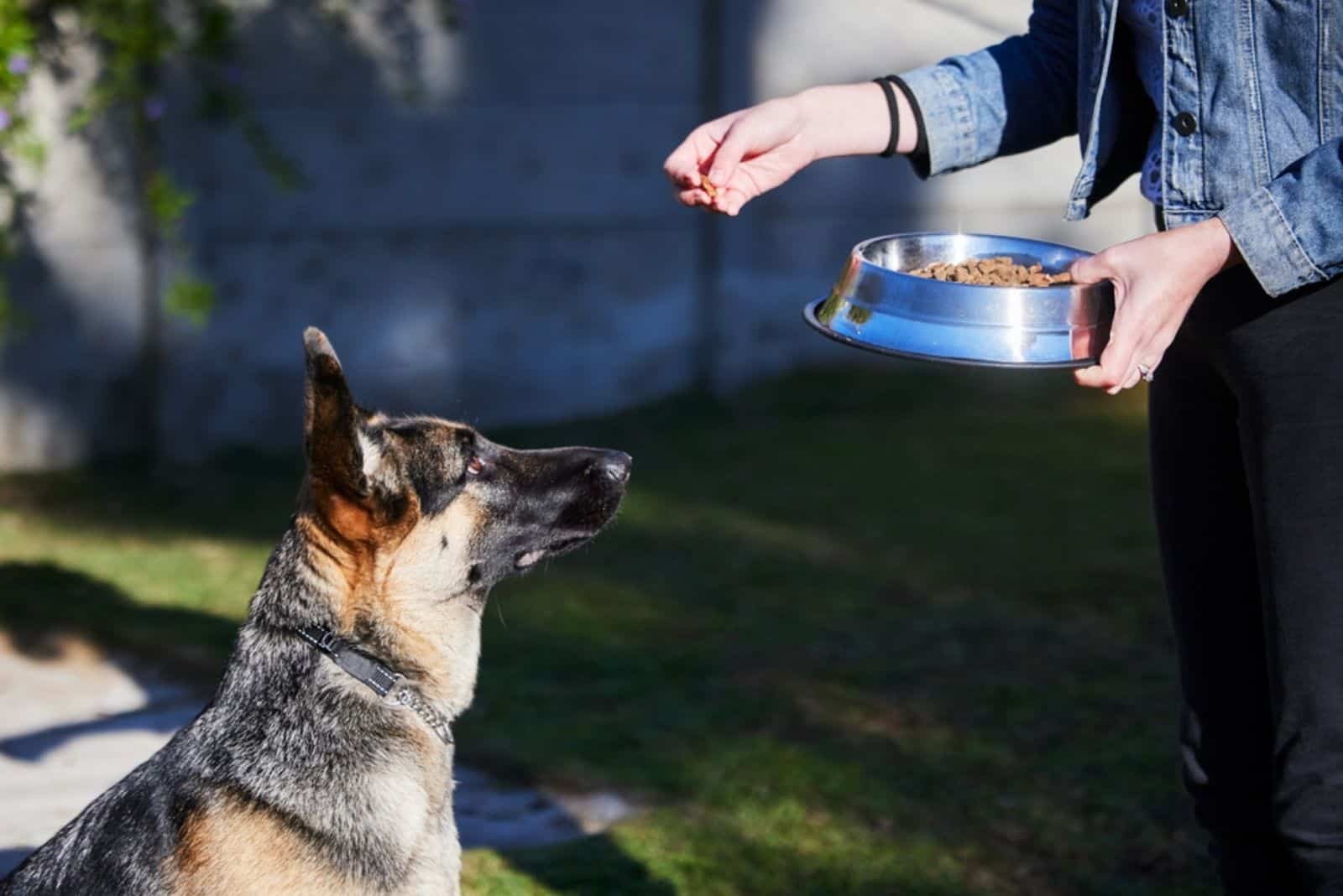
Are you not following your dog’s routine? And, now you’re dealing with constant GS howling, barking, and yelping? Well, that is a huge mistake. There is a reason why GSDs are known to be impeccable workers, and following a routine is number one.
Breaking down your dog’s routine negatively affects its overall behavior. Always keep its meals, training, and sleeping timely. That way, you will prevent your dog from displaying too many outbursts in the first place.
Consequently, you will increase the natural obedience level in your dog.
7. Be Patient
Are you a first-time GSD owner? The first thing you should know is that these canines require a lot of patience. That’s right! Alongside consistency, devotion, and love – patience is probably the most important segment of GSD ownership.
If you’re not willing to endure bad times with your dog, you are probably not likely to endure the good ones, too. Obedience needs to be deserved. So… be patient!
Why GSDs Are Disobedient

Stress
One of the most common reasons why GSDs are not obedient to their owner is stress. There are a plethora of triggers for stress in a GSD puppy, but the number one trigger is bad parenting.
GS puppies that don’t receive a proper amount of attention, exercise, sleep, and food are highly likely to be frustrated and stressed out. Besides self-destruction, stressed canines are usually aggressive, and it is not rare to see them attack either.
Separation Anxiety
Dealing with a clingy dog is difficult at times. However, you need to accept that GSDs are simply the way they are. They are easily attached, affectionate, and loyal dogs that love spending time with their owner.
Leaving them to deal with solitude is never a good option as it triggers separation anxiety. Unfortunately, separation anxiety triggers only the worst in them, which is why anxious GSDs are generally self-destructive, aggressive, and disobedient.
Some dogs are even prone to escaping or hiding from their owner. That’s why if you have a busy daily schedule – you should train your dog gradually in solitude. The use of TV shows, interactive playgrounds, and chew toys is highly recommended in this regard.
Trauma
Dogs that deal with some sort of trauma are generally harder to train. This is because their PTSD (post-traumatic stress disorder) disables them from performing normal activities.
Dealing with a traumatized dog should go slowly and gradually. Never push anything unless you see encouragement from your dog.
If you’re much too inexperienced to heal your dog from trauma – get professional help from a licensed dog trainer or dog behaviorist. The latter one is probably a better solution in this regard.
Improper Parenting
Many dog owners don’t know how to implement basic obedience training, which is the main root of all problems in terms of a GSD’s behavior.
On the other hand, dog owners who don’t strictly follow their dogs’ daily routine are highly likely to deal with disobedient pets.
Improper parenting is rooted in an inadequate training routine, feeding routine, and exercise routine. Once you get these things fixed – you will soon see the first results.
Conclusion
Wondering how to get a German Shepherd to obey you never comes without a reason. In order to identify what makes your dog disobedient, you need to look into your GSD’s daily routine, medical records, and previous parenting methods.
Once you get all these things set – you can slowly start the application of these seven aforementioned obedience methods. I wish you all the luck!
Read more: 8 Answers To Why Is My German Shepherd Scared Of Everything










